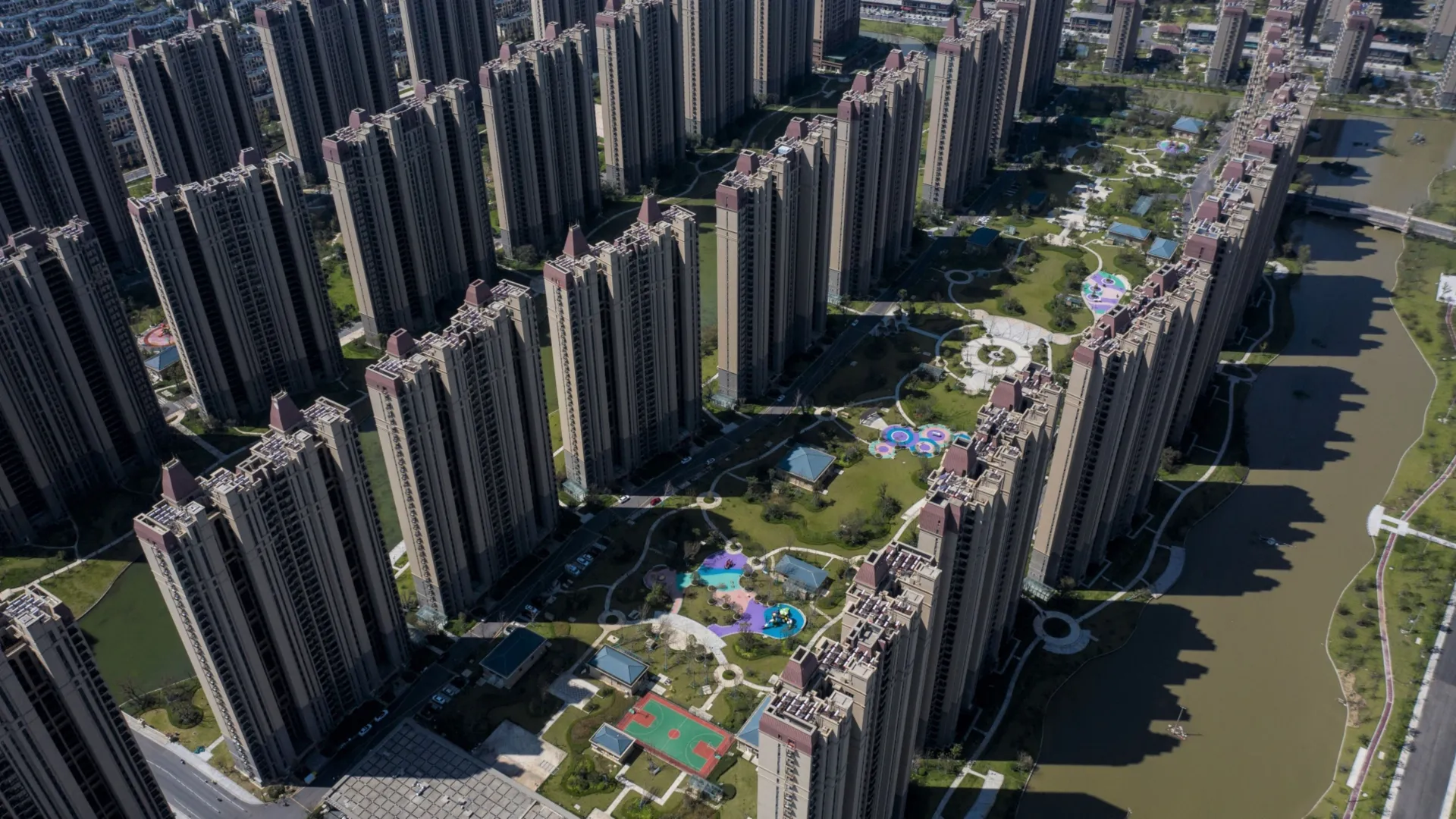Today’s News

Image Source: Al-Jazeera
The decline in Beijing’s housing prices has raised concerns in China’s property sector, as discrepancies between official data and broker accounts fuel worries that the authorities might be downplaying the gravity of the crisis.
Despite official statistics indicating a robust housing market in the Chinese capital, interviews with over two dozen real estate brokers reveal a different reality. They suggest that transaction prices have plummeted between 10 to 30 percent from their peak in 2021, contradicting the National Bureau of Statistics’ index of existing home sale prices in Beijing.
Dan Wang, chief economist at Hang Seng Bank China, pointed out, “That is very different from what the public feels. The government may want to use official numbers to restore confidence in the market.”
This disparity has not only raised doubts about the accuracy of China’s official statistics but also triggered concerns among investors. There’s a fear that authorities might be manipulating figures to meet ambitious growth targets, leaving policymakers unaware of the true state of the market.
Liu Yuan, a Shanghai-based researcher at Centaline Property Agency said, “Actual home price falls are far bigger than NBS numbers. Official statistics could make policymakers think the market is doing fine when it is actually in deep trouble.”
Analysts warn that the housing sector’s crisis poses a significant risk to the broader economy, impacting construction activity, household wealth, and consumer confidence. Dan emphasized, ” The Chinese economy won’t get back on track until the housing market recovers”.
Notably, the decline in Beijing’s home prices stands out, as the city, sheltering well-paid government employees, had previously remained stable despite economic turmoil. However, sellers in the capital have recently begun offering substantial discounts, especially for older apartments, which comprise over half of the listings.
Centaline’s housing price index revealed a 10 percent decrease in Shanghai over the 12 months ending in June, contrasting with a 9 percent rise in Beijing during the same period. However, starting from the second half of this year, home sellers in Beijing began offering substantial discounts.
The price cuts are most pronounced in older apartments, constituting over half of the current listings. For instance, in downtown Beijing’s Panjiayuan neighborhood, a three-bedroom apartment in a complex from the early 1980s is now listed at RMB 3.1mn (USD 435,000), significantly reduced from RMB 4mn (USD 559,769) a year ago. Despite this, the property has seen minimal interest, with the broker hinting that prices might drop further.
“We are open to negotiation if buyers are sincere,” said the broker. “But there are not many of them.”
Newer properties aren’t faring any better. In the central Beijing district of Chaoyang, a two-bedroom apartment in the popular 2005-built Apple Community compound was sold in October for RMB 6mn (USD 839,653), notably lower than the RMB 7.5mn (USD 1,049,567) price in March for a similar unit in the same neighborhood.
Even luxury residences are experiencing depreciation. For instance, a four-bedroom apartment in the esteemed Oak Bay residential complex now stands at RMB 33mn (4,618,095), down from RMB 38mn ( USD 5,317,735) in March.
Due to the challenging market, many sellers, like office worker Jane Wang, have been compelled to slash prices multiple times within a short period. Wang initially listed her centrally located two-bedroom apartment for RMB 5.6mn (USD 783,666) in March but received no inquiries two months later. She progressively reduced the price to RMB 5.3mn (USD 741,684) and then RMB 5mn (USD 699,711). Eventually, in desperation, she relisted the property this month for RMB 4.7mn (USD 657,728)—less than what she paid for it four years ago.
While authorities are aware of the industry’s difficulties, they’ve been reluctant to release third-party data from leading real estate brokers, a source of transaction and listing information for the Ministry of Housing and Urban-Rural Construction.
The reliability of data has become a concern, with reports such as the one from property platform Beike suggesting a 12 percent vacancy rate in completed residential apartments across major Chinese cities. Following this report, Beike was banned from disclosing historical transaction prices, leading to a more cautious approach in releasing data to the public.
This lack of dependable information has dampened confidence among buyers. Wang Lei, a marketing executive in Beijing, postponed home-buying plans this year, expecting further price declines.
” I don’t need the government to tell me everything is fine,” remarked Wang. ” It is not.”
Other News
Wells Fargo’s Historic Unionization Leap
Albuquerque Wells Fargo branch pioneers major U.S. bank unionization, marking a milestone for labor movements and the Communications Workers of America’s expansion within the company.
Argentina Auctions USD 3.7 Billion in Local Currency Debt
Argentina auctions USD 3.7 billion in local currency treasury debt, addressing a significant portion of the country’s 10% GDP-shortfall in central bank debt. The move, involving Argentine banks, introduces inflation-linked bonds.
U.S. Strengthens Sanctions on Russian Oil Trade
The U.S. introduces blocking sanctions on Russian oil trading firms and a tanker company to hinder Kremlin revenue flow. These measures counter evasion tactics allowing Russian oil sales to evade set revenue reduction caps.



